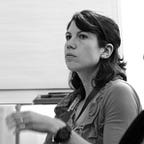Distributed work changes the nature of work
In traditional office life, work can fill several different buckets in an employee’s life: a source of income, a daily purpose (maybe a larger purpose as well if you’re one of the lucky ones), a social outlet, a way to see progress as you contribute a piece to a larger endeavor, a pattern and structure for the days and weeks. The experience of not going to an office and collaborating strictly with humans who are not physically near you is different in ways it can be easy to underestimate.
Coworking spaces are an attempt to try to recreate some of those missing layers in a remote work environment — a physical space to function as a container for “work time,” physical presence among other human beings. For me, working alone in a coworking space always feels disjointed, like I have put the wrong head back on the Mr. Potatohead doll when I try to patch on the social layer of work by working next to people who are not the people I am actually working with.
Distributed work changes the nature of work. When you work alone from the comfort of your home, you can viscerally see and feel that work time is just time in your life. We have always known this is true, but the physical separation of “work time” can trick us into thinking it is not. With remote work, this reality sinks in and intrinsic motivation for your work becomes not a luxury, but a necessity. Without it, if you are working purely for money, common sense dictates you will put in the minimum amount of effort required to fulfill your end of the bargain. (4-hour workweek, anyone?)
Are our traditional modes of employment built for this new future of work? Is it possible for employees to feel intrinsically motivated to toil away on their small nibble of the pie at massive global insurance companies / banks / technology companies?
I have a hard time thinking it is a coincidence that nearly every person of the two dozen I have interviewed in the past few months has talked about wanting to find purpose in their work. With distributed work — i.e. the future of work — intrinsic motivation is a necessity. How will this change the types of work people are willing to spend their lives doing?
